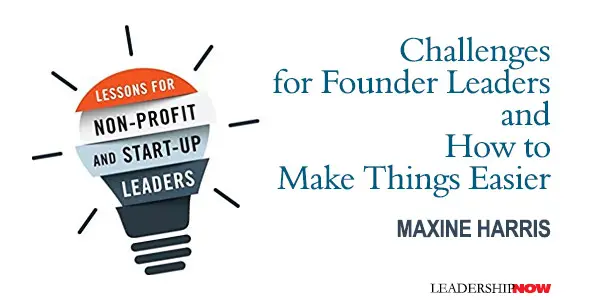 Leading Blog | Posts by Month |
 Leading Blog | Posts by Month |
10.31.17

LeadershipNow 140: October 2017 Compilation
See more on
Posted by Michael McKinney at 08:27 AM
10.18.17

Challenges for Founder Leaders and How to Make Things Easier
F Here are 4 tips for leading a founder run-organization more effectively and more efficiently while getting better results in the process.
 
Posted by Michael McKinney at 09:14 PM
10.01.17

First Look: Leadership Books for October 2017Here's a look at some of the best leadership books to be released in October.    
For bulk orders call 1-800-423-8273  Build your leadership library with these specials on over 39 titles. All titles are at least 40% off the list price and are available only in limited quantities. "The habit of reading is the only enjoyment in which there is no alloy; it lasts when all other pleasures fade." — Anthony Trollope
Posted by Michael McKinney at 01:27 AM
|
BUILD YOUR KNOWLEDGE


How to Do Your Start-Up Right STRAIGHT TALK FOR START-UPS 
Grow Your Leadership Skills NEW AND UPCOMING LEADERSHIP BOOKS 
Leadership Minute BITE-SIZE CONCEPTS YOU CAN CHEW ON 
Classic Leadership Books BOOKS TO READ BEFORE YOU LEAD |
|